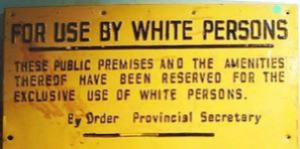Apartheid Policies in the U.S.
by Ed Sawicki - July 26, 2020

Trevor Noah writes about the racist policies of apartheid in his homeland, South Africa. Americans should realize that similar racist policies exist here. Here are eleven examples of these policies. There are more.
- Pharmaceutical companies set prices for life-saving drugs so high that many people must choose between life-saving drugs and living expenses. Many die and a disproportionate number are Black. Congress has not acted to solve this problem.
- Even after Blacks were allowed to vote, poll taxes, literacy tests, and the Ku Klux Klan prevented them from voting for politicians who might represent their interests. Without that power, Blacks were a constituency without representation. Ironically, Donald Trump eluded to that in 2016 when he asked Blacks, “What have you got to lose?”
- Redlining by banks denies minorities capital that is available to Whites. This discrimination harms their ability to start and maintain businesses and acquire wealth.
- Black homeowners have their houses appraised for significantly less than Whites. Some Blacks have Whites pose as the owner of their houses so they can get a better price when they sell.
- Investment and private equity firms, like Bain Capital (Mitt Romney's company), can purchase companies and reduce or eliminate employee pensions. The impact of this pension theft hits minorities the hardest.
- School segregation puts minority students at a disadvantage. The separate schools were never really separate but equal. White schools had access to better resources and offered a better education. Even when states enacted laws to ensure that tax dollars were apportioned fairly, White communities got around the laws by forming organizations that allowed them to provide additional funds to their schools.
- Racial covenants in deeds to property prevented minorities (especially Blacks) from purchasing land and housing in White areas. You can still find these covenants in existing deeds. Entire communities have had these covenants. These have been referred to as sundown towns. It's not limited to towns. In 1844, Oregon banned African Americans from the territory altogether, though it was never enforced.
- Discriminatory laws and unequal justice cause Blacks to be imprisoned for terms much longer than for Whites. Plus, most states do not allow felons to vote, causing the Black community to have less of a say in the political process.
- Environmental injustices tend to target minorities. Flint, Michigan is a good example of a largely Black community that was poisoned by a change to a water supply and delivery system initiated by White city managers.
- The unemployment rate for Blacks is significantly higher than Whites and always has been.
- Urban food deserts—a variety of economic factors cause grocery stores in inner cities to have a scarcity of healthy, nutritious foods. This leads to, for example, Black children not doing as well as their White counterparts in school.
These apartheid policies have stolen opportunities from our Black citizens that we'll never be able to compensate them for.
Thanks to Bill Saphir for his suggestions for this article.
Sources
California neighborhood has 'whites only' rule
For whites only: Shocking language found in property docs throughout Bay Area
White America is quietly self-segregating
A History of Housing Practices in Long Beach
NY Times: Black homeowners have their houses appraised for less.
Book: Born a Crime: Stories from a South African Childhood by Trevor Noah
Book: The Daily Show Presidential Twitter Library by Trevor Noah
Race For Profit: How Banks and the Real Estate Industry Undermined Black Homeownership
Dispossession: Discrimination against African American Farmers in the Age of Civil Rights
Choice and Coercion: Birth Control, Sterilization, and Abortion in Public Health and Welfare
Wikipedia: Institutional racism